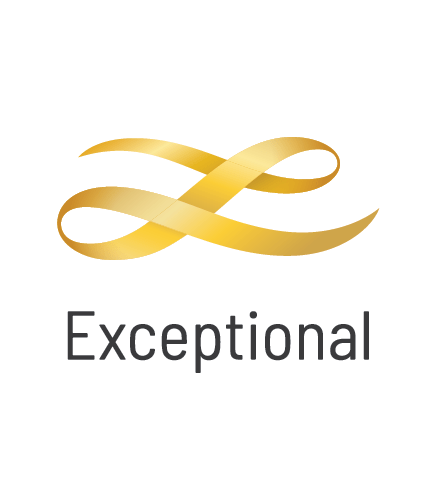Mayacamas Vineyards Cabernet Sauvignon
MAYACAMAS VINEYARDS Cabernet Sauvignon, Napa Valley Not much has changed by way of production since Bob Travers started the Mayacamas estate in the early 1940s. The fruit is handpicked early, often in early September - abvs usually end up between 13 and 14 percent to preserve natural, altitude derived acidities. Fermentations occur predominantly in open-top cement vessels which were built in the 1950s, again to preserve acidities and vibrant fruit character. Extended ageing occurs exclusively in neutral oak some as old as 100 years typically for three years which allows the vineyard's expression to shine through the powerful fruit profile, while also minimising oxygenation and helping to maintain the powerful and tight tannin structure Mayacamas is so famous for. The wines then usually spend a further two years in bottle before it is ready to be released to the market. Mayacamas make wines that lie in stark contrast to the more prevalent rich, heavily oaked, high in abv, bombastic wines that are common in the Napa Valley.
Favia CERRO SUR Red Wine
Chateau Montrose 2me cru classe
Chateau Montrose is a second Grand Cru Classé estate in St-Estephe and is considered one of the leading wine properties of the appellation. Located in the eastern half of the appellation just 800 metres from the Gironde estuary, the propertys proximity to the water provides a unique micro-climate that protects the vines from frost. The Grand Vin is a blend of Cabernet Sauvignon, Merlot and Cabernet Franc, that appears very powerful and austere in its youth, with a backbone of firm tannins that provides exceptional longevity.
Chateau Leoville-Las-Cases 2me cru classe
With one of the longest and most pedigreed histories in the Medoc region, Chateau Leoville-Las-Cases has passed through the hands of some of Frances most notable and wealthiest noble families, culminating in the Las Cases family - the final royal family to hold title to the Chateau. Up until the French Revolution, after which large portions of it were sold off, it was one of the largest vineyards in Bordeaux. Today, the estate remains family owned by the Delons, of which brother Jean Hubert and sister Genevieve manage proceedings. Famed for producing a wine of structure, power, and traditional style, the 2016 vintage has earned outstandingly high praise, including a score of 100 from Andrew Caillared and a 19/20 from Jancis Robinson who praised its extraordinary vitality and energy and proclaimed it glorious to taste now.
Chateau Lafite-Rothschild 1er cru classe
One of the most famous - as well as one of the most expensive - wines in the world, Chateau Lafite Rothschilds history dates back to 1235, by which time, it is believed, the vines were already planted and thriving. Nearly 1,000 years later it still retains the name of its then-owner Gombaud de Lafite. It wasnt until 1868 that the Rothschilds came to become the Chateaus owners, after it was sold at public auction in Paris - and it remains in their hands today. Producing an elegant Paulliac wine, Chateau Lafite is renowned for its characteristic blend of rich dark fruit with spicy, savoury and earthy notes of cassis, tobacco, and truffle. The 2016 earned sterling reviews, with James Suckling scoring it a perfect 100 and speculating on its standing as Perhaps the greatest Lafite since the legendary 1959.
CHATEAU LA MISSION-HAUT-BRION Cru classe
Château la Mission Haut-Brion is on uniquely stony soil in the Pessac-Léognan appellation close to the city of Bordeaux. It is a Cru Classé in the Graves Classification of 1953. The 22.5 hectare red wine vineyard is planted to Cabernet Sauvignon (46%), Merlot (44%) and Cabernet Franc (10%). The chateau wine is vinified in large (180hl) temperature-controlled, stainless steel vats and aged in 100% new French oak for an average of 22 months. Annual production is 6000-7000 dozen. The famous white wine of the chateau comes from 3.5 ha planted to Semillon (62%) and Sauvignon Blanc (38%). Overall planting density is 10,000 vines per hectare (red) and 8000 vines per hectare (white). Since 1983, under the ownership of Domaine Clarence Dillon (which also owns the neighbouring Chateau Haut Brion), the entire estate has been renovated vineyards, winemaking facilities and the chateau itself. The property got its name in the 1600s when it was owned by the Catholic Church.
Chappellet Pritchard Hill Cabernet Sauvignon
A wine of elevated elegance, sourced from high-elevation vineyards and delivering rich flavours of black cherry, cassis, and dark chocolate with velvety tannins and a long finish. This iconic Napa Valley offering, with a history dating back to 1967, epitomizes the pinnacle of winemaking excellence, earning accolades and acclaim world wide. A blend of 95% Cabernet Sauvignon and 5% Petit Verdot. Aged for 22 months in 100 percent new French oak.
Quintarelli Alzero
Abreu Madrona Ranch Cabernet Sauvignon
ABREU Madrona Ranch Cabernet Sauvignon, Napa Valley


















